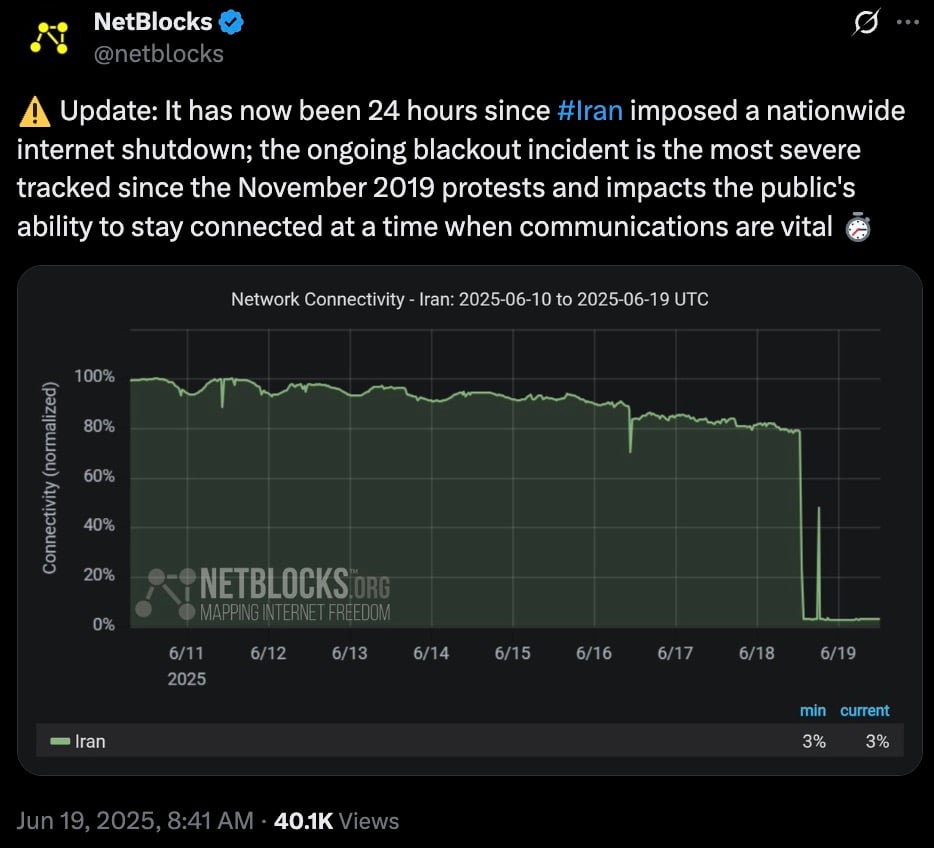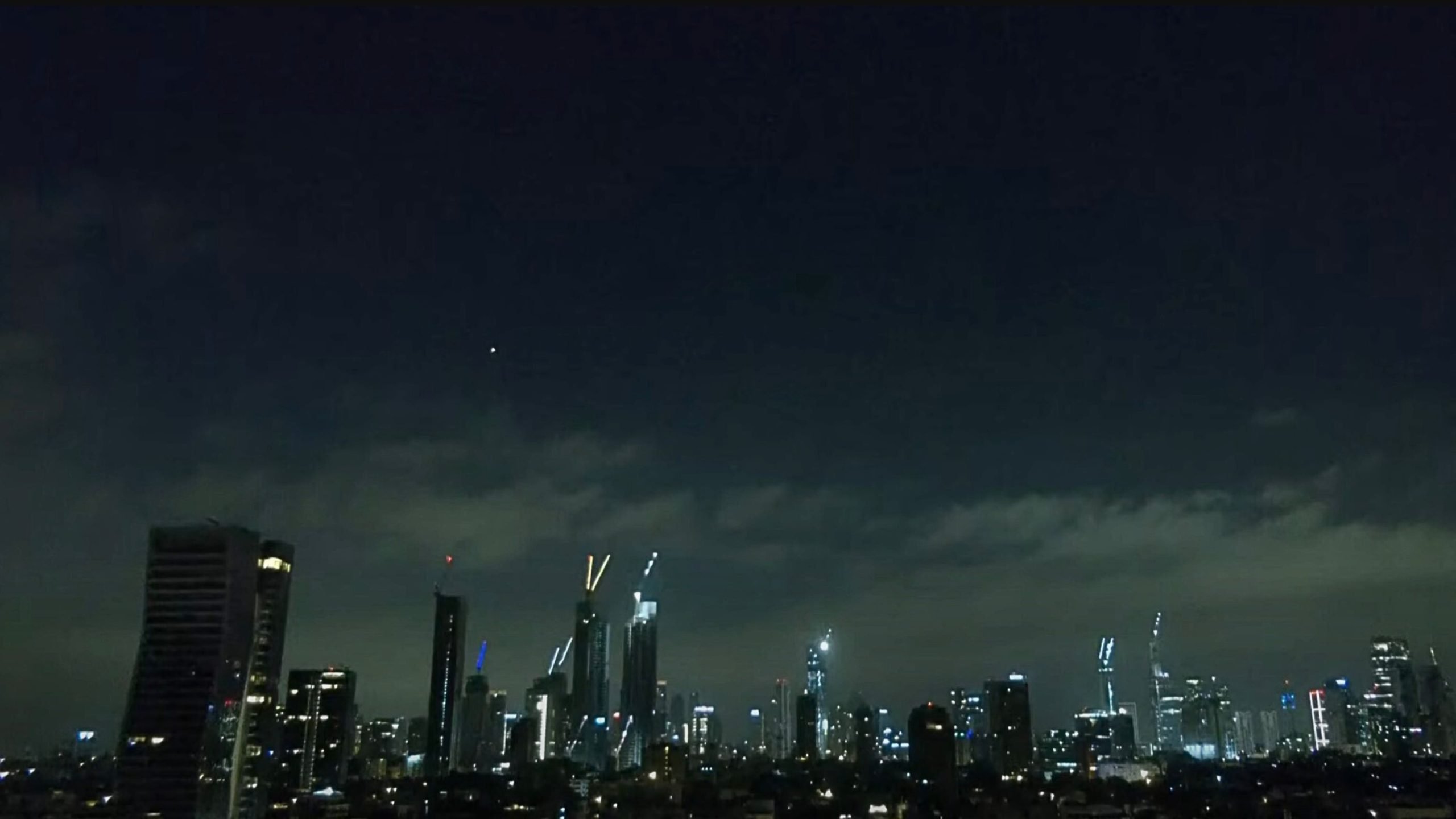Citing national security, Iranian authorities have once again clamped down on internet access across the country.
The latest blackout follows Israeli airstrikes on June 13 and has left vast portions of the Iranian population cut off from essential communication channels during an escalating conflict.
Government agencies described the move as a “temporary restriction.”
Connectivity dropped by more than half the day the strikes occurred.
In the days that followed, the situation worsened. By June 17, access had plunged another 49 percent.
State-backed media claims the blackouts are meant to prevent “enemy abuse” of the internet.

The alarming disappearance of connectivity was highlighted by NetBlocks, which stated on X that Iran is “now in the midst of a near-total national internet blackout.” Their analysis was backed by additional data from other observatories, including IODA, which specializes in detecting widespread network disruptions.
“We have previously stated that if necessary, we will certainly switch to a national internet and restrict global internet access. Security is our main concern, and we are witnessing cyberattacks on the country’s critical infrastructure and disruptions in the functioning of banks,” Fatemeh Mohajerani, Iran’s government spokesperson, said to local press. “Many of the enemy’s drones are managed and controlled via the internet, and a large amount of information is exchanged this way. A cryptocurrency exchange was also hacked, and considering all these issues, we have decided to impose internet restrictions.”
Cloudflare’s David Belson told TechCrunch that web traffic originating from Iran has plummeted to just 3% of what it was a week earlier, based on internal metrics. “We can only see that the traffic dropped; the data doesn’t tell us why it dropped,” he noted.
He explained that typical signals of such a dramatic internet outage, like a reduction in visible IP address space, haven’t appeared this time. “In similar cases of near-complete Internet outages, we often see a concurrent drop in announced IP address space…However, we have not seen such activity in this case,” Belson said.
Iran used similar measures during anti-government protests in 2019 and again in 2022 after the death of Mahsa Amini in police custody.
As the blackout drags on, Iran’s parallel internet system; the National Information Network (NIN); is being used to funnel users toward state-approved platforms.
These domestic apps, like Bale, continue to function during outages, but often come with major privacy concerns.










